A new type of Yukon winter, as seen on a drive to Skagway
This has been an extremely unusual winter in the southern Yukon, with temperatures much warmer than normal, and very little snow. A drive to Skagway yesterday showed just how unusual it is.
Because the large lakes and even much of the Yukon River haven’t frozen yet, we’ve had a lot of fog and low cloud around Whitehorse for weeks. This “steam fog” is caused when cold air meets the warmer air layer just above the open water – that drops the warm air below the dew point and fog results. Yesterday, it once again looked like sunshine wasn’t far away, with Golden Horn peeking out from under the fog layer.
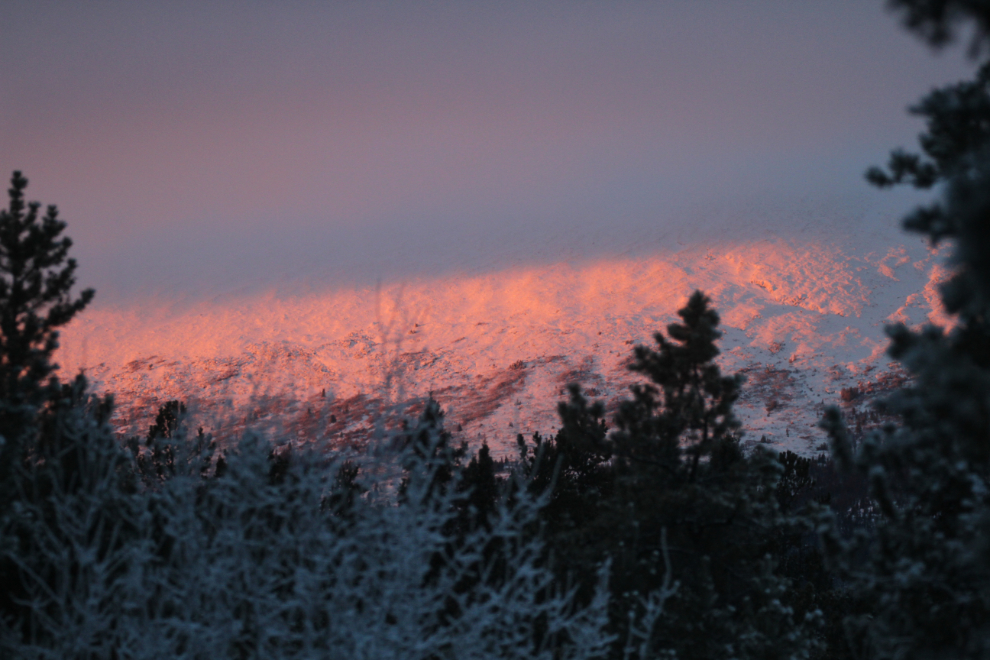
At 1:00 I decided on the spur of the moment to go to Skagway. I loaded all my photography gear, a bit of emergency gear, and fired up up inReach. Bella and Tucker were excited to get out on a little adventure as well. The temperature was -21°C (-6°F) as we left Mary Lake – the first day of normal winter temperatures in a long while.
The next photo was shot just north of the Robinson subdivision on the South Klondike Highway. It felt so good to be out on the highway!

The next two photos were shot on a section of the highway that I often stop along. With Montana Mountain in the background, I love these views.
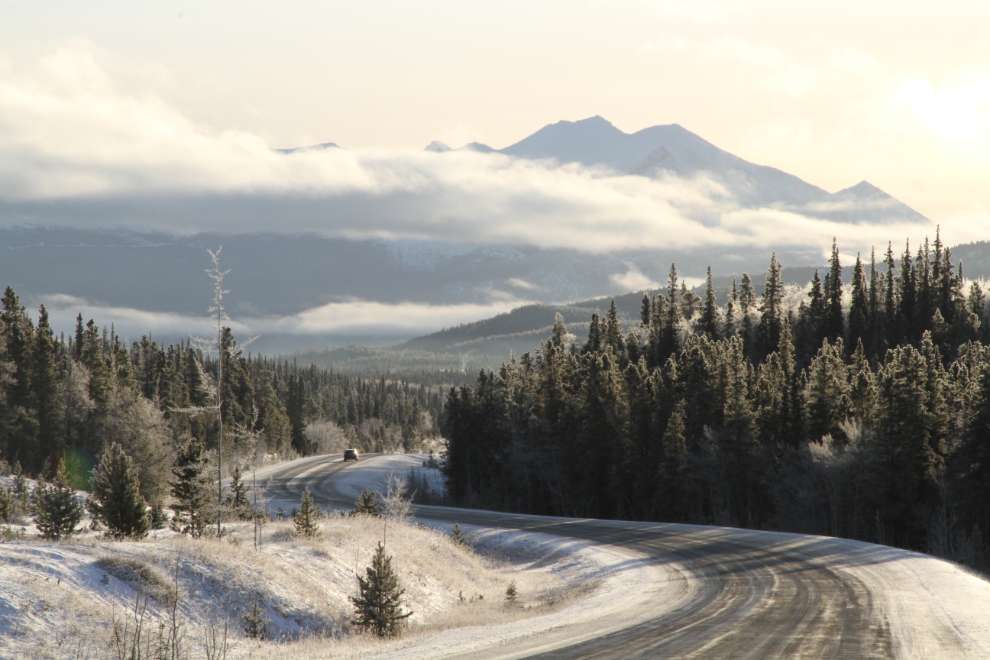
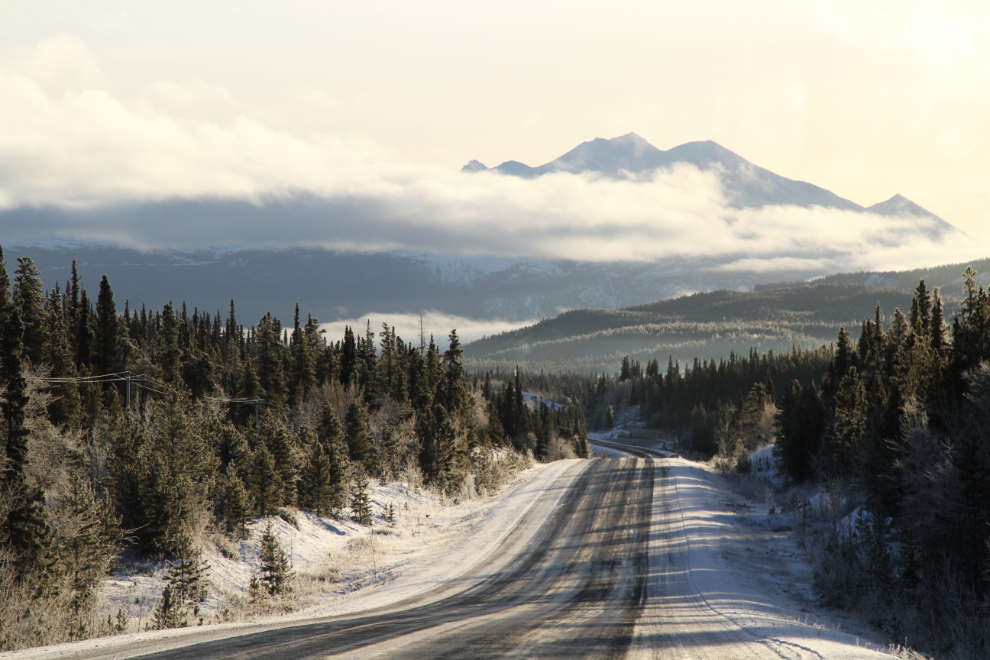
At Carcross, the world closed in, with the fog from Lake Bennett and Nares Lake quite thick. At Bove Island, I got enough of a glimpse through the fog to see that much of Windy Arm far below was still open as well.
A couple of miles of Windy Arm at Conrad were frozen, though the ice was clearly not very thick.
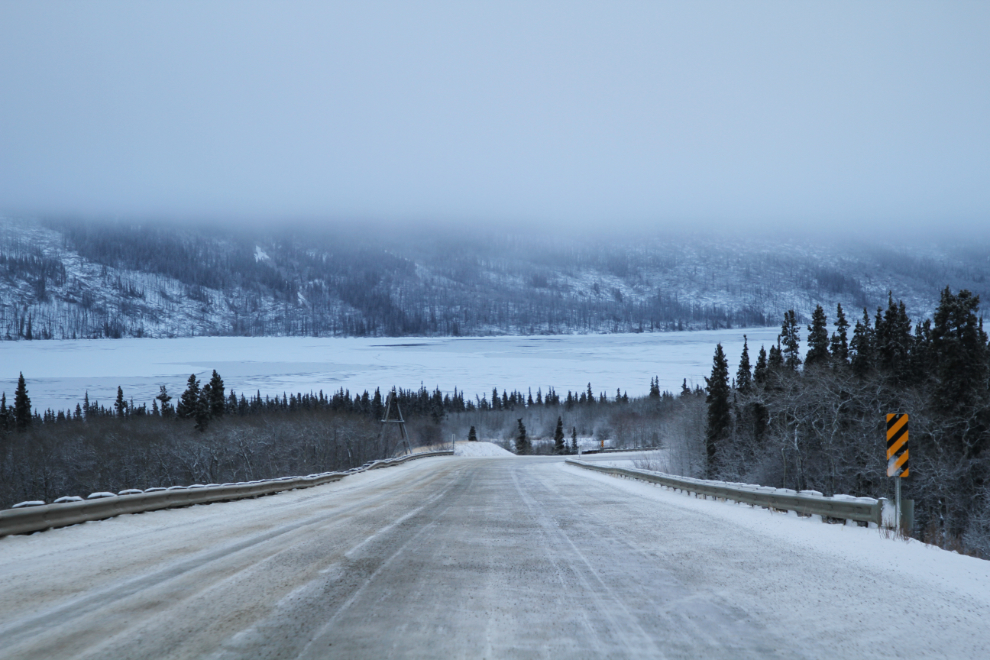
At the Pooley Creek alluvial fan, the lake opened up again. The highway very quiet – I hadn’t seen a singe vehicle south of Carcross, and only a half a dozen north of Carcross.
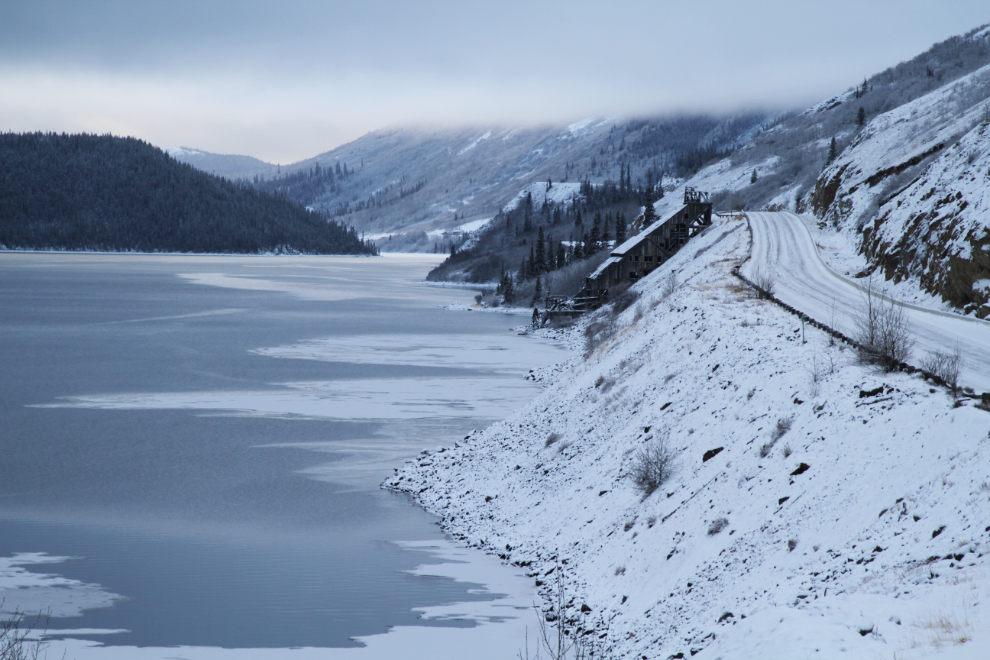
The south end of Windy Arm – the Yukon/BC border runs across the open water in the next photo. Tutshi Lake was completely open, and the fog was thick.
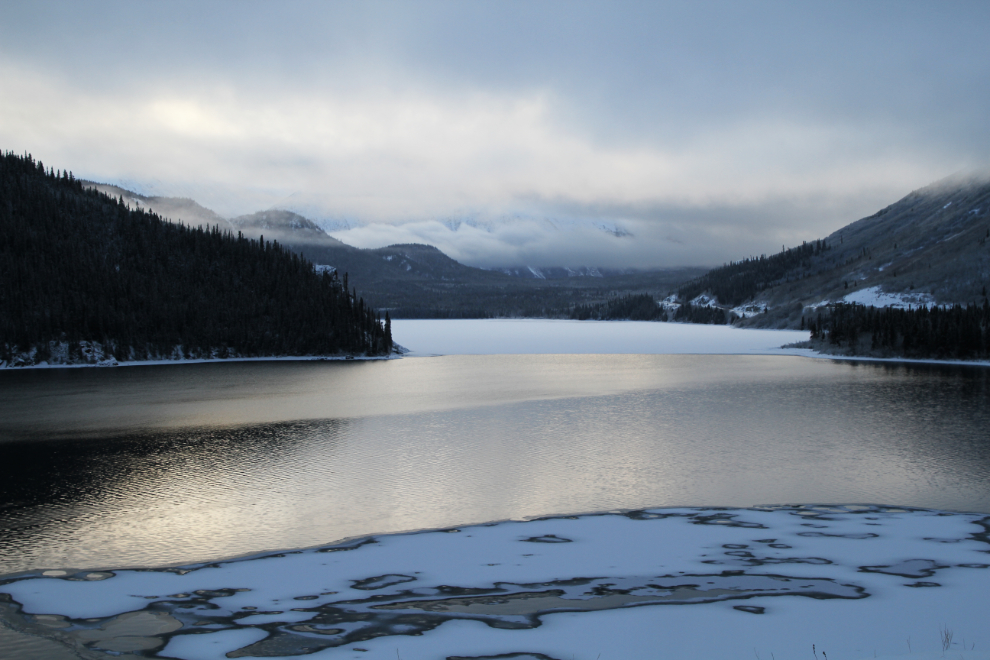
Climbing into the White Pass, the lakes were all frozen, and the visibility improved greatly, but now clouds from Skagway hid the sun.
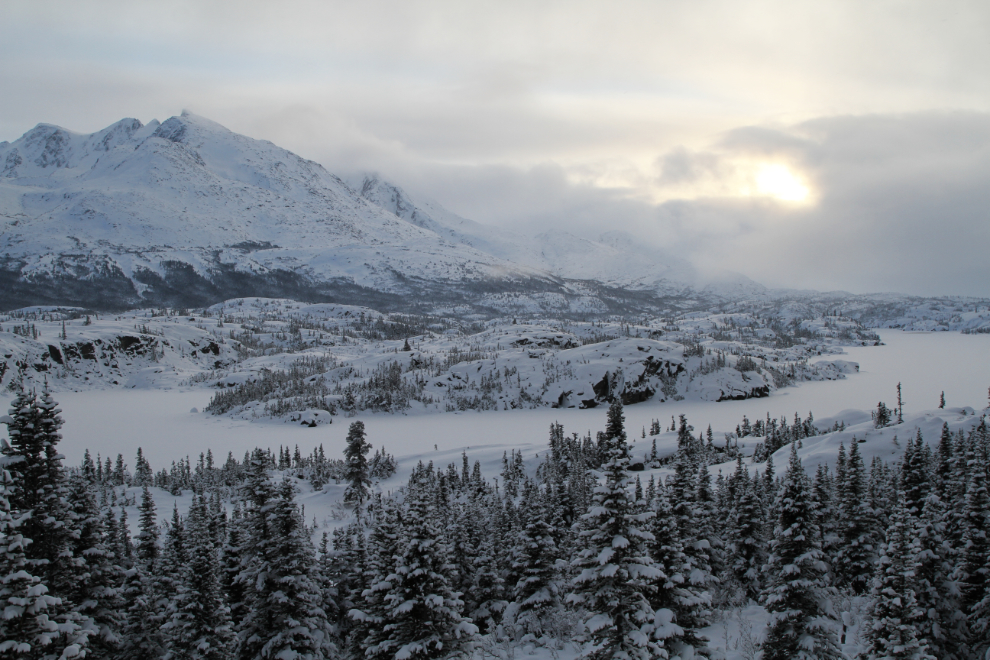
Looking back to the north, with the fog from Tutshi and Tagish lakes filling the valley. Through the White Pass summit area, the cloud/fog was so thick that if not for the poles along the highway, it would have been pretty much undriveable, as they were all that could be seen.
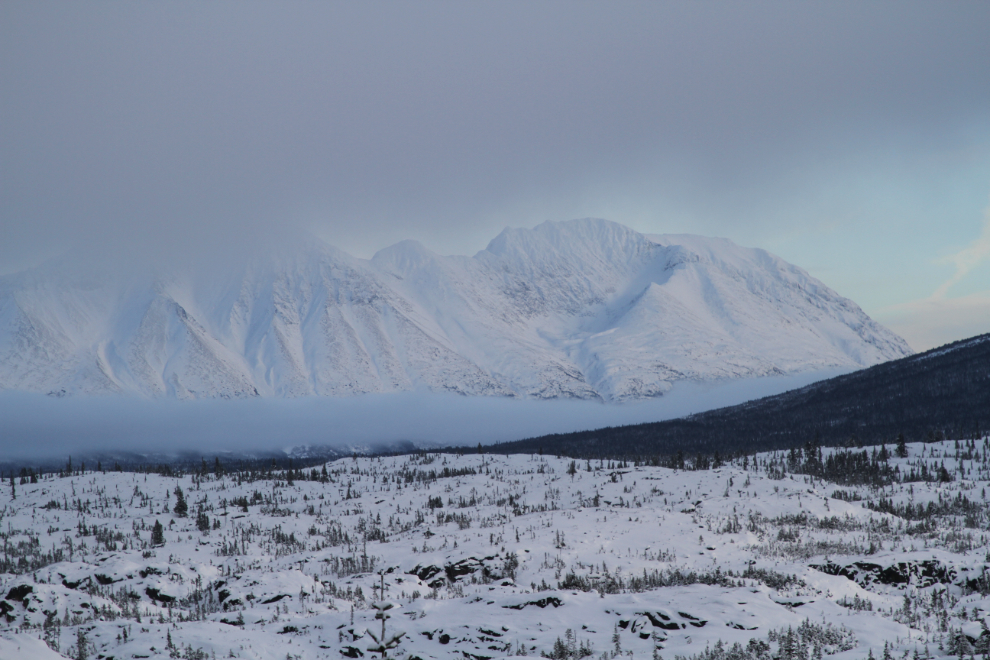
Dropping down towards Skagway, the temperature climbed rapidly, but a heavy dump of snow had just happened – overnight, I assume, but maybe even that morning. The temperature when I shot the next photo just north of Skagway was -2°C (+28°F), and it rose to 0°C in town.
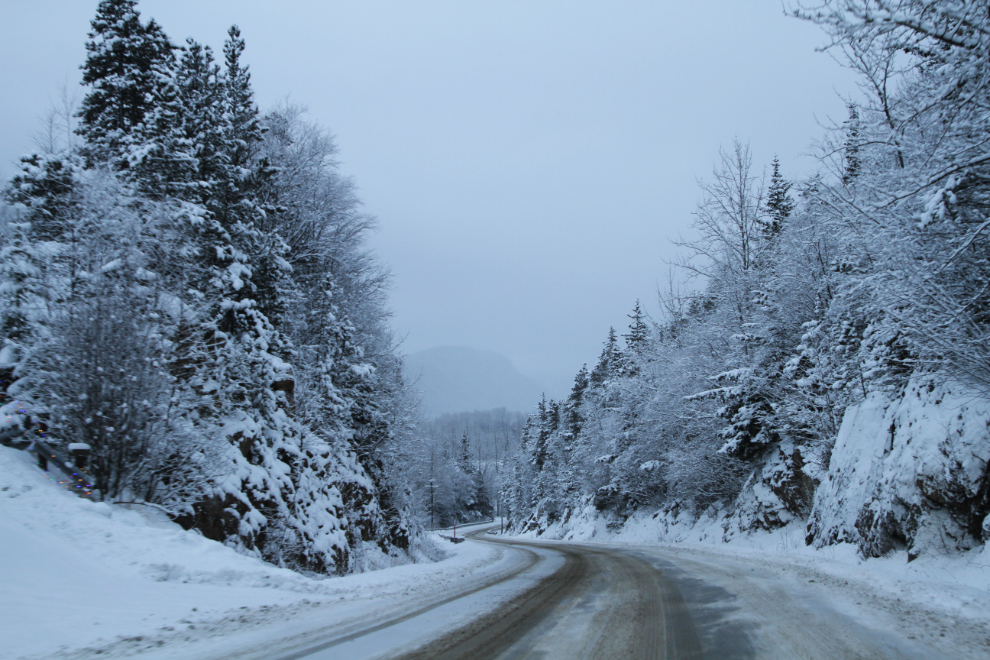
I stopped at the post office to pick up a small package that had been in my box for weeks, then did my usual loop around town. There’s no problem dealing with Christmas shopping crowds in Skagway, though there were 3 vehicles parked at the hardware! 🙂
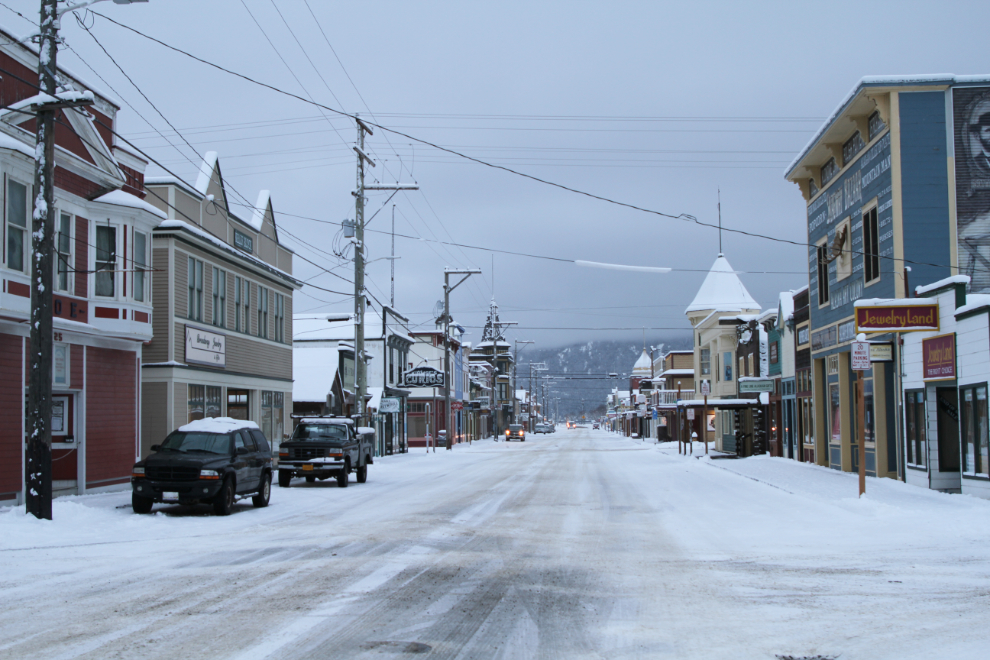
The museum and old City Hall looked wonderful with fresh snow. Skagway snow removal crews always impress me with their efficiency – they have the whole community cleared very quickly after a dump. I don’t recall ever seeing more snow in Skagway than in Whitehorse, but that’s sure the case now.
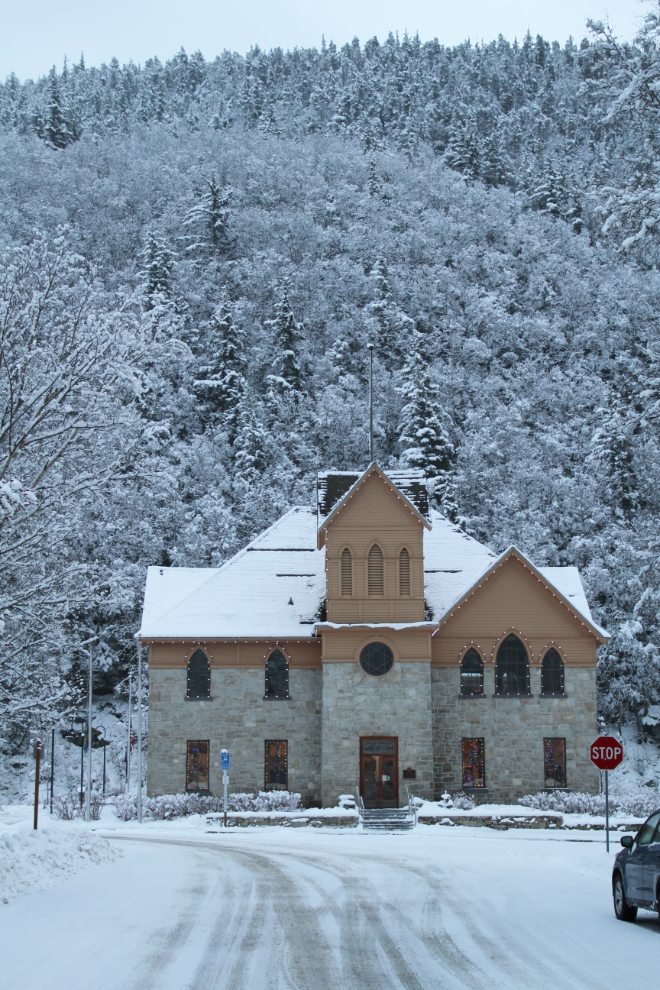
Built by Baldwin Locomotive Works in February 1943 and brought to Skagway to assist with the Alaska Highway and Canol projects, the WP&YR’s 2-8-2 locomotive #195 has been getting a bit of love in recent years, but needs much more.
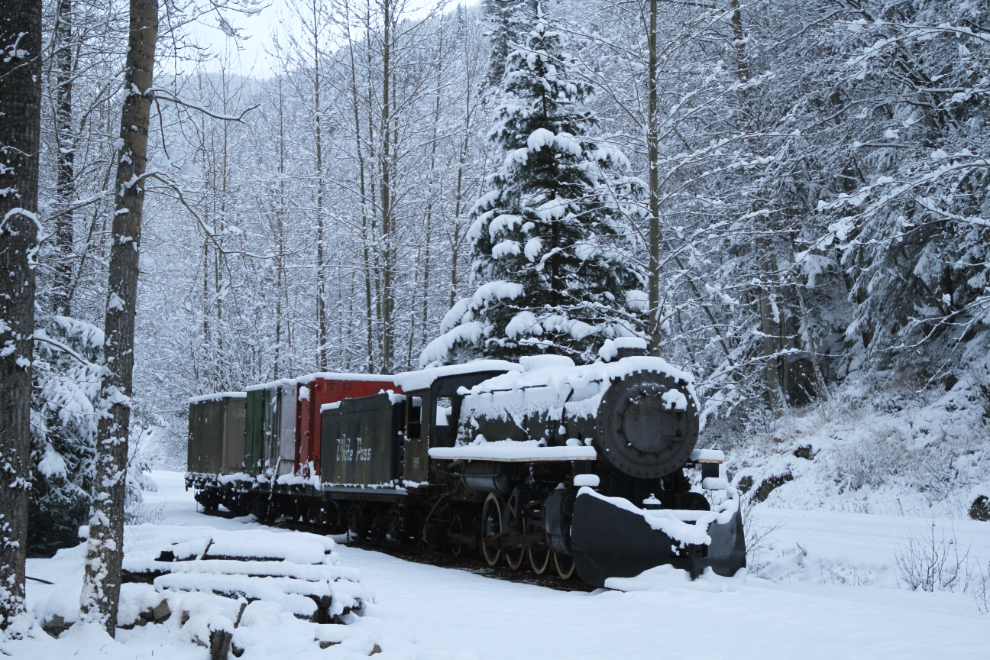
Despite being 0 with no wind, it felt very cold at the Small Boat Harbor.
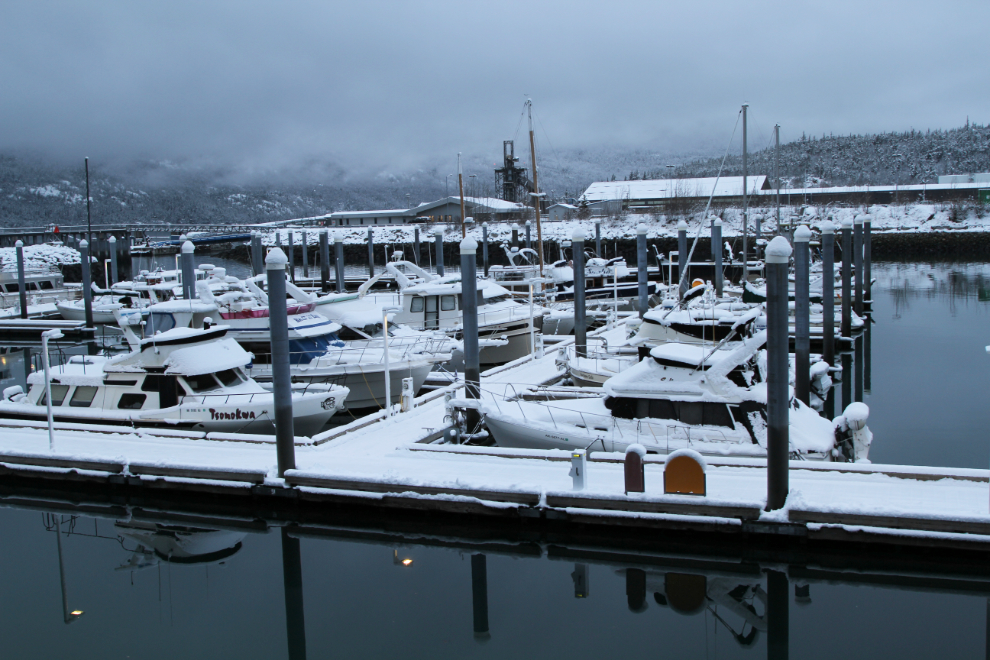
The last stop was the airport for a look at Yakutania Point. There were a couple of harbor seals at the mouth of the Skagway River.
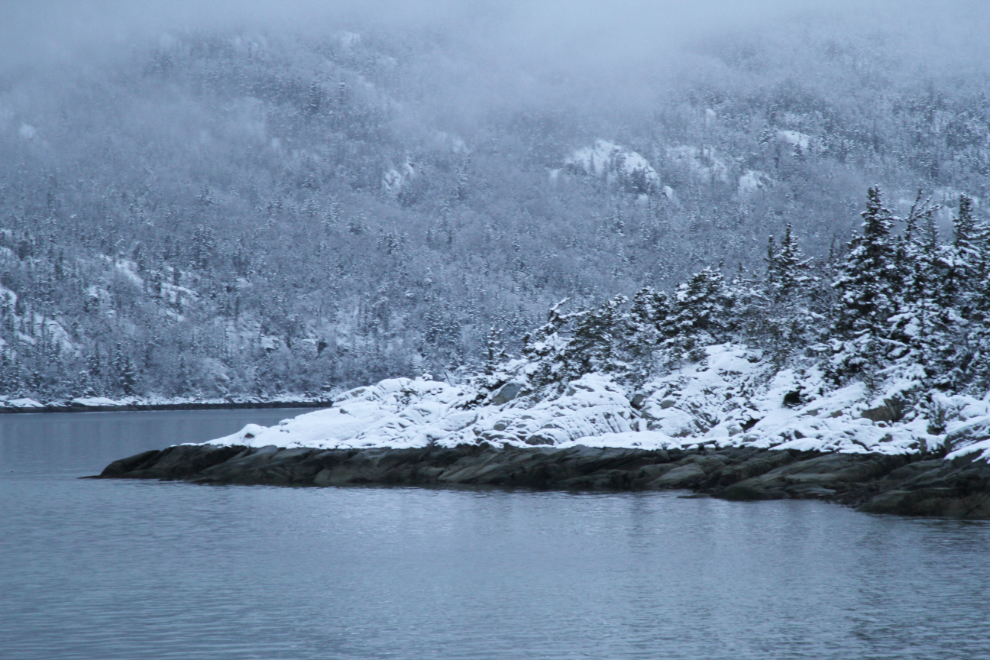
Not particularly inspired by the photography potential and with sunset happening somewhere above the clouds, I started back up the hill at 3:45 Yukon time.
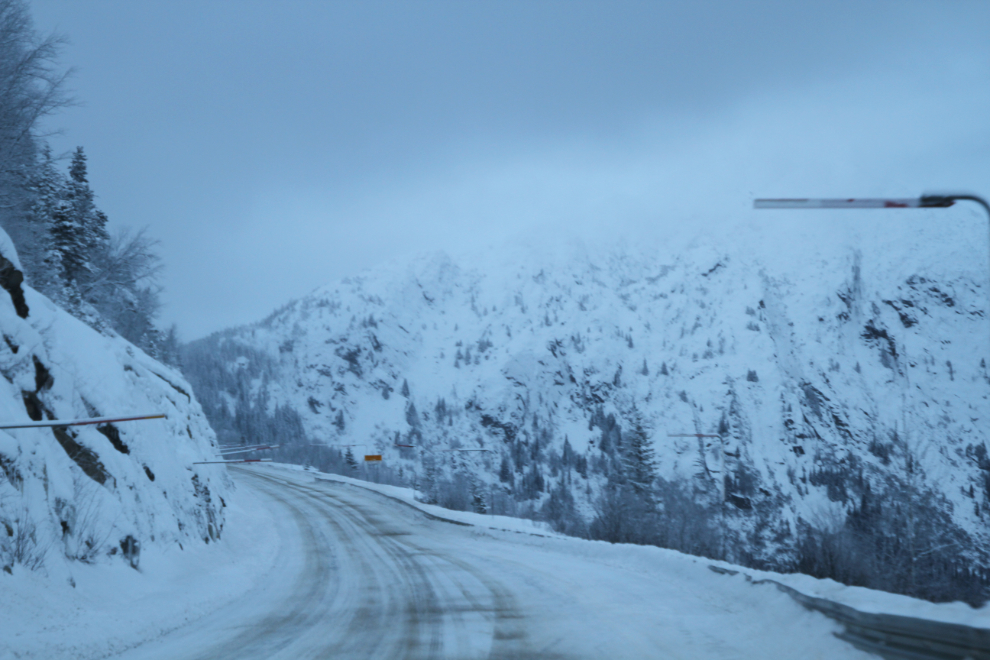
The highway is a in good shape and the snowplow was just doing some fine-tuning of the edges, so I went by him as soon as the highway straightened out.
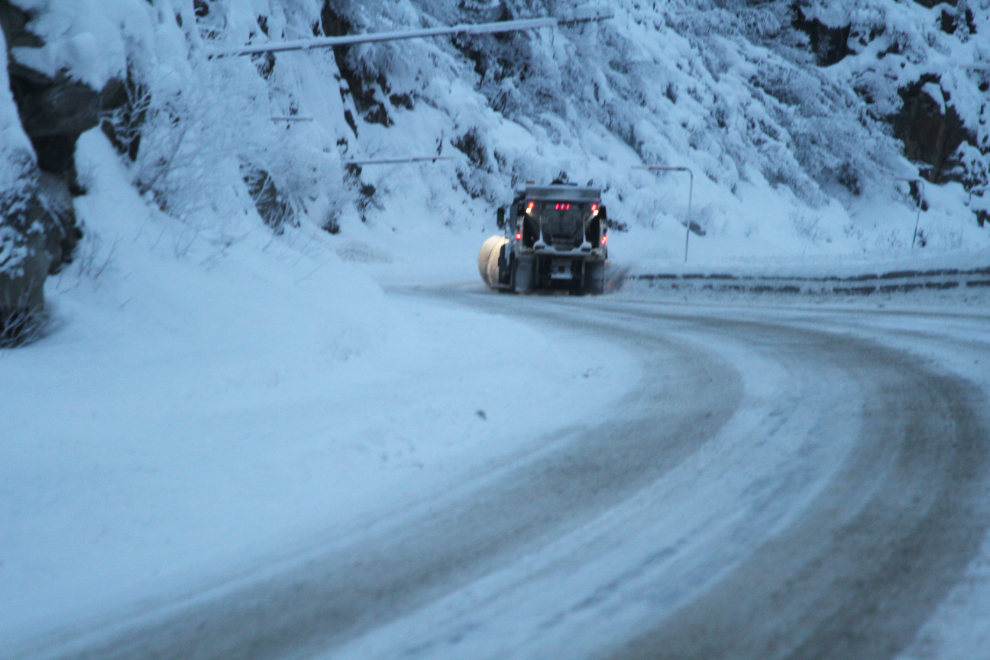
With darkness closing in, I didn’t take any more photos on the way home. We stopped at the summit so Bella and Tucker could have a good run, and we were home just after 5:30. Only 4½ hours but a wonderful break, and an interesting look at this new type of Yukon winter.
